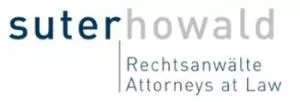The new Foreign Nationals and Integration Act will come into force on 1 January 2019. The revision of the law aims to improve the professional and social integration of foreign nationals living in Switzerland, through clear integration requirements and positive incentives.
I. BACKGROUND
The Swiss Foreign Nationals Act (FNA) and the corresponding ordinances are currently under revision. One part of the revision affects the integration of foreign nationals in Switzerland.
In a whole, the revision aims to improve the professional and social integration of foreign nationals living in Switzerland, through clear integration requirements and positive incentives.
This revision was split in two packages. The first package entered into force on 1 January 2018 and aimed to remove administrative hurdles related to the employment of certain categories of foreigners. The second package – the subject of this News Alert – was approved in August 2018 by the Federal Council and will come into force on 1 January 2019.
II. MAIN CHANGES – WHAT IS NEW
1. NEW TITLE OF THE LAW
The title of the Foreign Nationals Act will change. The Foreign Nationals Act will become the Foreign Nationals and Integration Act – FNIA (Ausländer- und Integrationsgesetz – AIG / Loi sur les étrangers et l'intégration – LEI).
2. ACCESS TO THE SWISS LABOUR MARKET FOR TEMPORARILY ADMITTED FOREIGNERS AND RECOGNIZED REFUGEES
The access to the Swiss labour market will be facilitated for temporarily admitted foreigners, for recognized refugees who were granted asylum and for recognized refugees who have been temporarily admitted. These three categories of foreigners will be allowed to work in Switzerland once the employer (or the self-employed person) has notified the gainful activity to the competent authorities via an online notification procedure. This means that the filing of a complete work permit application will not be necessary anymore.
3. INTEGRATION CRITERIA
Under the new law, the immigration authorities will have to take into account the integration level (or the chances of integration) of foreign nationals in order to grant or extend a residence permit (B permit) or a permanent residence permit (C permit).
The integration criteria to be used by the authorities in the evaluation of the integration level of a foreign national will be defined in the law and are according to art. 58a FNIA as follows:
- Compliance with public security and order;
- Compliance with the values of the Swiss Federal Constitution;
- Language skills;
- Participation in the economic life or acquisition of an education.
The ordinances will clarify the scope and the content of the criteria in a more detailed way.
4. LANGUAGE REQUIREMENTS
In practice, the criteria of the language skills will be the one having the most significant impact on the granting and extensions of work/residence permits.
It will be the responsibility of the foreign nationals to demonstrate a certain level of knowledge in the language spoken at the residence place in Switzerland. The law provides for certain exceptions to the obligation to demonstrate the language skills
The required language levels will depend on the type of work/residence permit applied for:

The used scale is the Common European Framework of Reference for Languages (CEFRL).
Note: the language requirements for family members in case of family reunification may vary depending among other on the degree of relationship between the family member and the person already in Switzerland (spouse, child), the age of the children and the legal status of the person already in Switzerland.
5. INTEGRATION AGREEMENTS
In case of particular necessity of integration of a foreign national, the cantonal migration authorities will be entitled according to federal law to conclude an integration agreement with the foreign national before granting or extending a short-term residence permit (L permit) or a residence permit (B permit). Some cantons already have this policy under the current legal situation.
The integration agreements contain measures or objectives of integration.
The non-compliance with the integration agreement may in future lead to the revocation of a work/residence permit.
EU/EFTA nationals and foreign family members of Swiss nationals will not be affected.
6. NEW POSSIBILITY OF "DOWNGRADING" C-PERMITS
In case C permit holders do not comply with the integration criteria (see above II.3), the authorities will be entitled to revoke a C permit and replace it with a B permit ("downgrading").
III. SCOPE OF APPLICATION – WHO IS CONCERNED?
The new integration criteria will be applicable to the non EU/EFTA nationals (main holder and family members) seeking or holding a B (restricted or open) or a C permit in Switzerland.
The conditions of granting and extension of L permits remain basically unchanged.
The FNIA will in principle not affect EU/EFTA nationals as holders of work/residence permits in Switzerland or as family members of a person holding a work/residence permit in Switzerland, nor family members of EU/EFTA nationals holding a work/residence permit in Switzerland. However, there might be exceptions under certain circumstances.
IV. BUSINESS IMPACT
In general, non EU/EFTA foreign nationals living in Switzerland will have to make more efforts on integration, among others by learning the local language.
The time and energy necessary for language courses and related studying time should not be underestimated, neither by the employees nor by the employers, even though the language levels required for integration purposes are not very high. This will require particular planning and budgeting.
Temporarily admitted foreigners, recognized refugees who were granted asylum and recognized refugees who have been temporarily admitted, are available as a local workforce and may be hired without many administrative efforts related to work permits.
The exact way of implementation of the new law by the cantons, the way of control of the new integration requirements by the immigration authorities and the effective consequences of the new law for companies active in Switzerland and their employees are not yet certain and will only be defined after the new law has come into force.
V. NEXT STEPS
Once the FNIA is in force, at the beginning of 2019, the Swiss State's Secretariat for Migration (SEM) shall issue a directive on the new law. The directive is expected to provide more information on the way of practical implementation of the different changes.
The content of this article is intended to provide a general guide to the subject matter. Specialist advice should be sought about your specific circumstances.


